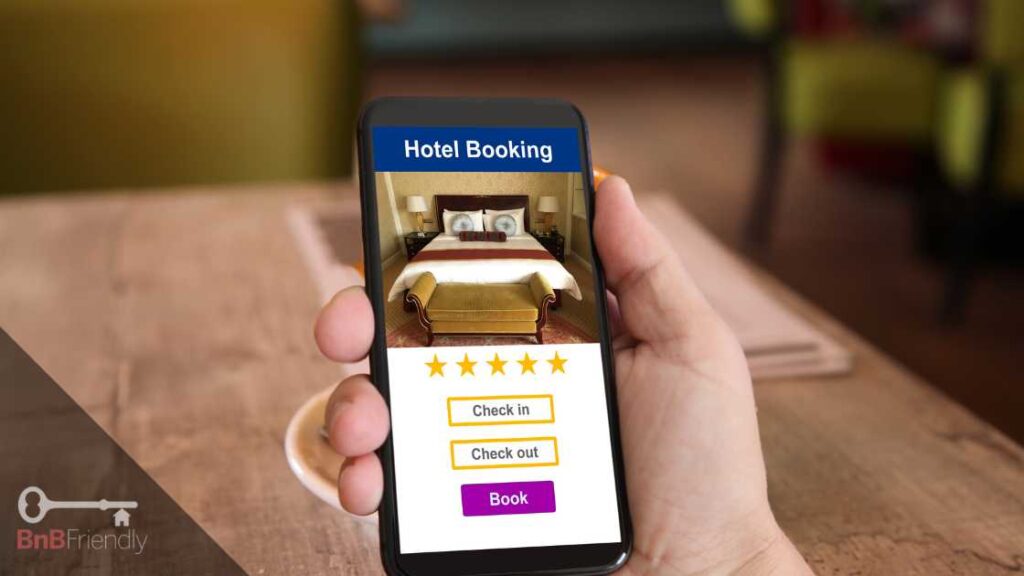Have you ever wondered how Airbnb works? How do they manage to connect people who need a place to stay with people who need to rent out extra space? It’s a lot simpler than you might think. In this step-by-step guide, we will walk you through the process of using Airbnb and explain how it all works. Whether you are looking for a place to stay on your next vacation or want to start renting out extra space on your property, this guide will teach you everything you need to know about Airbnb!
What Is Airbnb?
Airbnb has come a long way since its inception in 2007. It is now a platform that connects people who want to rent out their homes with people who are looking for accommodations in specific areas. Airbnb has listings in over 100,000 cities and towns, and in over 220-plus countries worldwide. This makes it a great option for those who are looking for an affordable place to stay while traveling.

Airbnb is a great way for people to make some extra money by renting out their homes. It’s also a great way for people to find accommodations in specific locales. Airbnb offers guests an easy, relatively stress-free way to find a place to stay, and often at a cheaper price than hotels. Airbnb makes the bulk of its revenue by charging a service fee for each booking.
How Airbnb Works: A Guide for Guests and Hosts
Airbnb has revolutionized the travel industry by providing a platform for people to rent out their homes or rooms to travelers. This provides guests with a more homey experience at a lower cost than traditional hotels, and it also allows hosts to make some extra money. I have used Airbnb myself and found it to be a great experience. I highly recommend it to anyone who is looking for accommodations while traveling.
How to Make a Booking on Airbnb
Creating an Airbnb account is simple – Open the Airbnb website, you just need to verify your phone number and you’re ready to go. From there, you can search for accommodations using various filters, such as location, price, and size. If you find the perfect place, you can make a booking right away, or reserve it to hold for later.
If you’re planning a longer-term stay, it’s also possible to set up a payment plan. This lets you pay an initial deposit and then the rest in installments. This can be a helpful way to budget for your trip.
Airbnb: How They Make Money
Airbnb makes money by taking a cut of every reservation made on its platform. Most guest service fees are under 14% of the booking subtotal. Hosts are charged 3% or more of the total amount earned for each booking. In some cases, Airbnb operates an alternative payment structure where hotels and some specific types of hosts located in certain regions of the world cover the service fee in full rather than split it with guests. When this is the case, usually person offering accommodation will be charged about 14%-16% of the booking subtotal but there are exceptions like mainland China where the host-only fee is fixed at 10%.
The Pros and Cons of Using Airbnb
Airbnb is a website and mobile app that connects people who need a place to stay with people who need to rent out extra space. Hosts can list any type of property, from a single room to an entire house, and they don’t have to pay anything to list it on the site. Guests can use Airbnb’s search function to find properties that fit their needs, whether they’re looking for a specific date or location, a type of property, or a certain price range.
When you’re considering using Airbnb to find a place to stay, it’s important to keep in mind that not all hosts are honest about their listings. You could end up dealing with property damage, and you’ll have to pay additional fees to Airbnb on top of the cost of your rental. In some countries, both hosts and guests may be subject to taxes. And not all locations allow for property rentals through Airbnb – so make sure it’s legal in the area you’re visiting.
How Hosts Get Paid: Airbnb’s payout methods
Hosts are paid out after Airbnb deducts its service fees. Hosts are usually paid 24 hours after the reservation begins, even for long-term stays which also include a monthly payout.

15 Payout methods include direct bank transfers or ACH, international transfers, PayPal, Payoneer Prepaid Debit Cards, Western Union, and AliPay (for Mainland China hosts only). Remember, banks do not process payments over the weekend or holidays, so Airbnb processing will resume the next business day.
Can You Stay in an Airbnb Long Term?
Staying in an Airbnb long-term can be a great way to save money on rent, especially if you’re looking for a temporary housing solution. Some hosts provide an option for longer-term stays and may even throw in a discount for these types of reservations. Bear in mind, though, that stays longer than 28 days require paying each month upfront and are subject to Airbnb’s long-term cancellation policy, which states that guests must give 30 days’ notice before checking in to receive a full refund. If you miss this deadline or wish to cancel during your stay, you will be billed for 30 days or the total cost of the reservation if it is for less than a month.
Airbnb’s Refund Policy
When you make a reservation through Airbnb, you may be able to get a full or partial refund if you decide to cancel. This depends on the host’s cancellation policy, which will be detailed in each listing. Generally, the amount you’re entitled to depend on how much time is left before checking in. If you click on the option to cancel your reservation, you’ll be presented with a complete breakdown of how much money you’ll get back if you proceed.
It’s also possible to get a partial refund after you’ve checked in, provided you file a request within 24 hours.
Airbnb Regulations: What You Need to Know Before Listing Your Property
Airbnb is a service that allows people to rent out spare rooms or properties to guests. There are a few things to keep in mind before becoming an Airbnb host. Firstly, the allowability of hosting an Airbnb will differ by location. Hosts need to do their homework and make sure they are aware of any licenses and permits that must be obtained before listing their property. Secondly, there may be restrictions in place that limit how many guests a host can have at one time, or how often a host can rent out their property. Finally, Airbnb reports all earnings to the designated tax authority. This means that hosts need to keep track of any money they make through Airbnb and declare it on their tax returns.
CONCLUSION
You now know how Airbnb works and what it can offer you as a user. You have also seen how easy it is to create an account and list your space. With this platform, you can easily earn some extra income or save money on your next vacation. Whether you are a guest or a host, using Airbnb can be a great experience. What are you waiting for? Go create your account and start exploring!